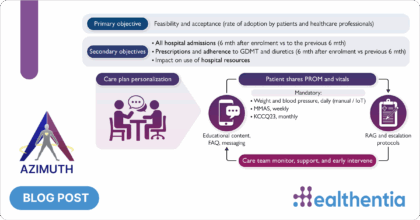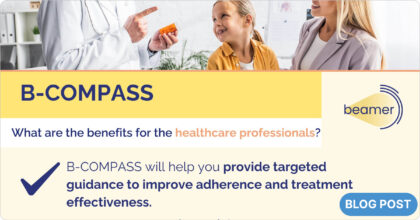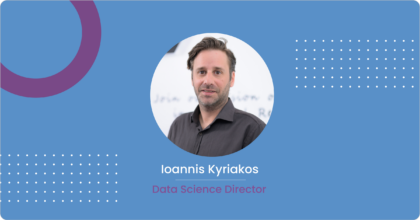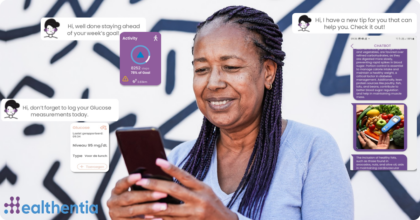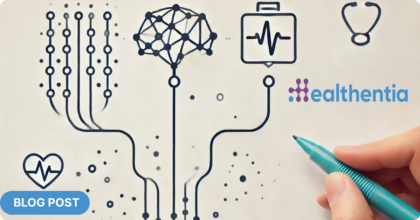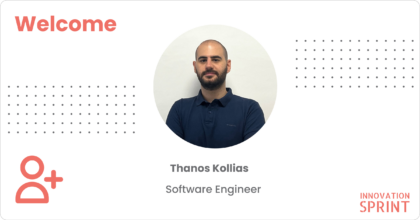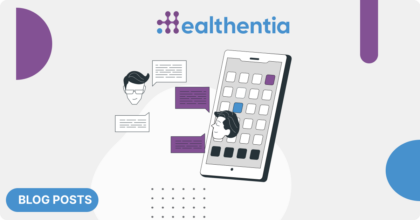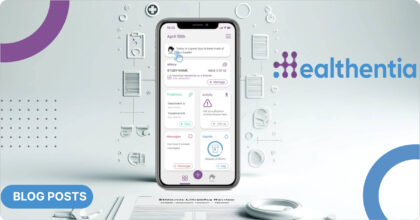
The biggest benefit of these wards are to facilitate continuous monitoring of patients’ health post discharge, reducing readmissions by providing post-discharge support and guidance. Access to care improves, especially for those in remote areas. Cost savings accrue through optimized resource utilization and reduced hospital stays. Patients feel empowered to manage their health with remote tools and education, enhancing their overall experience. Flexibility and convenience are paramount, allowing patients to receive care from home. Moreover, virtual wards support population health management by enabling effective monitoring and intervention based on collected data. Overall, they promise improved outcomes, cost-effectiveness, and patient satisfaction.
Healthentia has been used in two scenarios in Oncology. We will explore here the one from the Gynecology Oncology Unit that offers a direct line between surgeons and patients who will be able to report any symptoms or complications during convalescence.
The continuous observation and assistance to patients, monitoring their health condition outside the hospital, make management and interaction with the clinical team increasingly effective during the post-operative period, help research towards increasingly personalized care models. These are in summary the objectives of the Virtual Ward, a new App dedicated to gynecological patients undergoing surgery at the Gynecology Oncology Unit of the A. Gemelli IRCCS University Hospital, directed by Professor Giovanni Scambia.
The patient who decides to enter the Virtual Ward can download the Healthentia App for free on her mobile phone and thus begin to share numerous information that will help the clinical team to have a complete and updated picture of her health status. The Care Managers present the care path during the interview with the patient admitted to the ward and inform the doctor about the state of health and promptly notify him in case of need and urgency. The process begins at the time of discharge from the hospital and lasts approximately 30 days during which the patient receives a series of questionnaires which aim to evaluate the progress of the patient’s health condition with particular attention to signs and post-operative symptoms, state of the surgical wound and monitoring of any devices, such as catheters or drainage.
The patient also has the possibility of sharing numerous optional data such as vital parameters and multimedia content (photos, videos, screenshots of reports external to the facility), as well as being able to interact with healthcare professionals immediately and continuously.
“Virtual Ward is an integral part of our clinical practice – explains Professor Anna Fagotti , Director of the Ovarian Carcinoma Unit of the Agostino Gemelli IRCCS University Polyclinic Foundation. – This App is useful for patients to share, understand and resolve any health problems that arise while they are at home, accompanying them in the days following discharge from hospital. The home convalescence phase – continues Professor Fagotti – is a difficult emotional moment for patients, there are many uncertainties and many questions about the treatment path. Furthermore, patients may have little knowledge of the disease and difficulty recognizing signs and symptoms of clinical importance.”
The App can be an extremely useful tool, in fact it includes a Virtual Assistant who conveys useful information and advice, for example, relating to the lifestyle to follow in the post-operative period, thus covering an important educational role.
“This tool – concludes Professor Fagotti – is also very useful for us doctors. The data sent by the App allows us to immediately detect the onset of symptoms to correlate with possible complications related to the surgery which otherwise could emerge late. Through the App we can interact with the patient immediately and continuously and intervene in a timely and punctual manner.”
The close collaboration between the healthcare team and the Gemelli Generator – Real World Data Facility, coordinated by Dr. Stefano Patarnello , has made it possible to create a care model capable of integrating and supporting traditional post-operative monitoring means.
The experience of the clinical team made it possible to define an innovative assistance path: the questionnaires were defined to allow the patient an effective and pragmatic interaction; all the information collected allows a holistic view of the state of health; finally, the team of Care Managers dedicated to the development and management of the new care path is the focal point for guaranteeing the provision of the service on a daily basis.
The Gemelli Generator – Real World Data project team, coordinated by Dr. Alice Luraschi , worked together with Innovation Sprint company, manufacturer of the Healthentia medical device, to offer an intuitive service and tool of immediate benefit in clinical practice and in the patient’s daily life .
